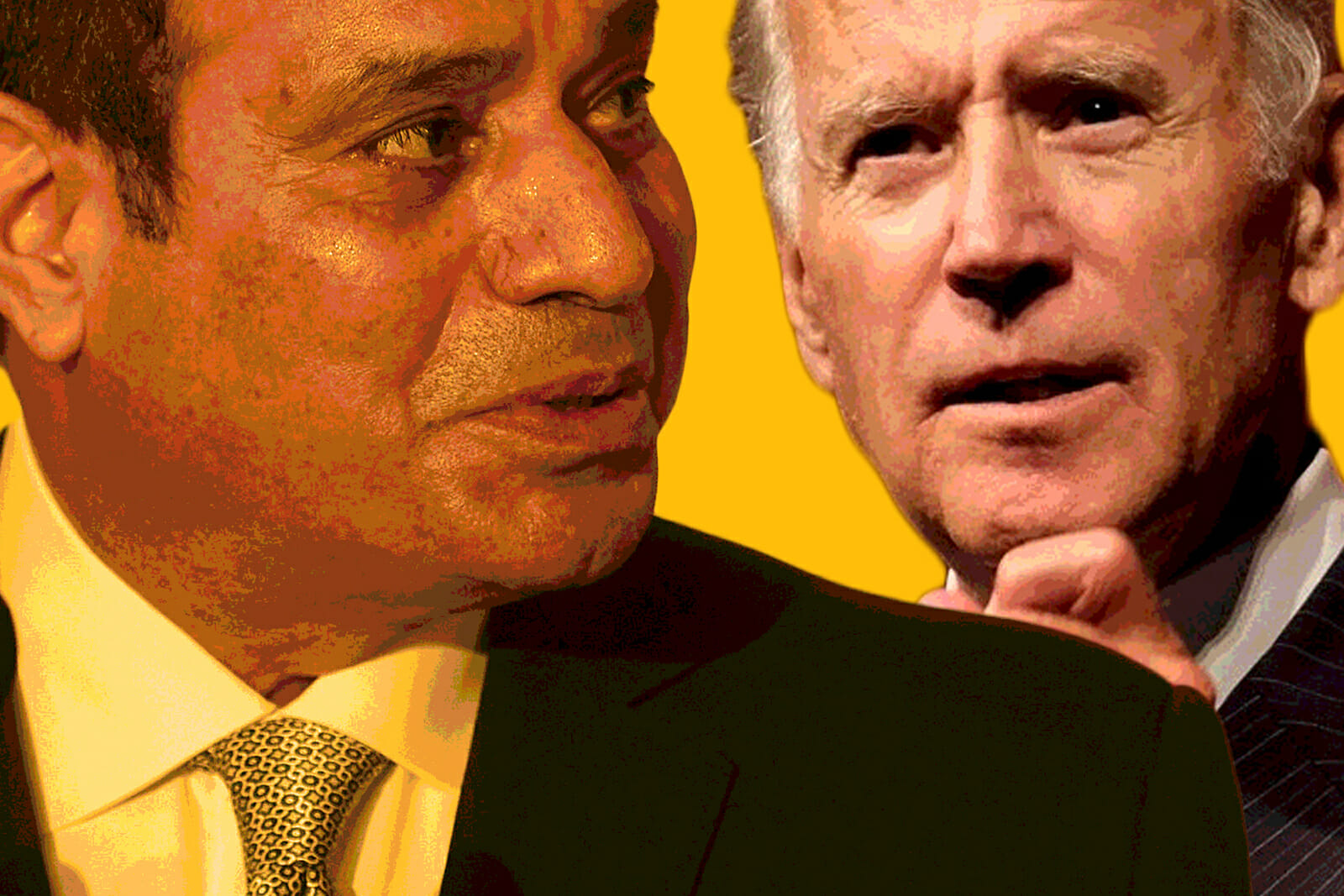
End the Blank Checks to Egypt’s Sisi
Mustafa Kassem, a U.S. citizen from Long Island, New York, spent more than six years imprisoned in Egypt. He died a year ago of heart failure after going on a hunger strike to protest his unjust imprisonment. Kassem was one of tens of thousands of people imprisoned unjustly by President Abdel Fattah el-Sisi’s regime. His death, despite pleas for U.S. intervention, sparked widespread condemnation. Beyond rhetoric, the U.S. government has done nothing to address the continued deterioration of human rights inside Egypt.
President Joe Biden pledged to end the “blank checks for Trump’s ‘favorite dictator,’” and it is high time for the U.S. to back up its words with action. The Biden administration should, at a minimum, reduce military assistance to Egypt and reinstate human rights conditions on the $1.3 billion provided annually to the Egyptian military. It must move beyond rhetoric to pressure the Sisi regime to change its behavior.
The U.S. claims it is committed to “promoting a stable, prosperous Egypt where the government protects the basic rights of its citizens.” Instead, it is contributing to President Sisi’s expanding repression through the provision of military assistance with little to no conditions attached. U.S. officials’ rhetoric has proven insufficient in curbing human rights abuses that include the detainment of U.S. citizens like Kassem. Unconditional U.S. military aid in light of these abuses undermines U.S. credibility and stated commitments to improving human rights and democracy in the region.
Reducing military assistance to Sisi’s regime would signal an important shift in U.S. policy to prioritize human rights, putting an end to those “blank checks” that Biden previously vowed to end. The Biden administration can and should remove national security waivers that allow Egypt to circumvent human rights conditions on military assistance. The policy shift would enable the U.S. to identify areas for improvement, such as curbing torture, releasing political prisoners, and easing restrictions on journalists and NGOs.
A partial suspension of aid and new conditions would both signal U.S. pressure and retain relations with Egypt, which remains an important U.S. ally. The Biden administration is likely trying to consider ways to pressure Egypt without disrupting decades of bilateral cooperation on a host of issues from defense to economic interests to cultural exchange. Focusing on human rights conditions is an important first step that will allow the U.S. to continue to engage with Egypt while pressuring the regime to moderate its behavior over time.
The policy shift could also enable the U.S. to rebalance aid to Egypt to boost economic support and reduce military assistance in order to support the Egyptian people, rather than the military, which continues to expand its influence over the economy and population. Egypt faces widening inequality, deepening poverty, rapid population growth, declining availability of water, and many other challenges. Boosting support to Egyptians instead of the military would be a much better investment for the U.S.
The Biden administration may be hesitant to shake up decades of strategic ties between the two countries. It will seek to preserve cooperation on defense, counterterrorism, and other areas deemed crucial to national security interests and so-called “stability” in Egypt and the region. However, the status quo of nearly unconditional military aid to Egypt is unsustainable, particularly as Sisi seeks to close any remaining space for opposition or dissent.
For far too long, the U.S. has been complicit in human rights abuses against the Egyptian people. Mustafa Kassem deserved better. The Egyptian people deserve better. The Biden administration must end the “blank checks” and impose human rights conditions on U.S. assistance to Egypt. It must reduce and re-examine its military aid to instead prioritize the Egyptian people, who rose up 10 years ago with calls for “bread, freedom, and social justice.” The U.S. must use its leverage to ensure the spirit and ideals of the Arab Spring live on.

